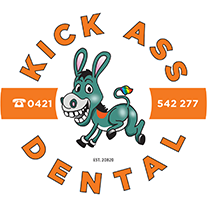What is the Highest Degree for a Dentist?

Introduction
Dentistry is a highly specialized field that requires years of education and training to master. The dental profession offers a range of career paths, from general dentistry to orthodontics, oral surgery, and more. If you are considering a career in dentistry, you may be wondering what the highest degree for a dentist is. In this article, we will explore the different degrees available to dentists and the requirements for obtaining them.
Bachelor of Science in Dentistry
The first step towards becoming a dentist is to obtain a Bachelor of Science in Dentistry (BSD) or a related field. This degree typically takes four years to complete and provides a strong foundation in basic sciences such as biology, chemistry, and physics. In addition to coursework, students in a BSD program may also participate in clinical rotations and research projects to gain hands-on experience.
Requirements for a BSD degree
To obtain a BSD degree, students must complete a rigorous academic program that includes coursework in the following areas:
- General biology
- General chemistry
- Organic chemistry
- Physics
- Anatomy
- Physiology
- Microbiology
- Biochemistry
In addition to coursework, students must also pass the Dental Admission Test (DAT), a standardized test that measures academic ability and scientific knowledge. The DAT is a crucial step in the dental school admissions process and is used by dental schools to evaluate applicants.
Doctor of Dental Medicine or Doctor of Dental Surgery
After completing a BSD degree, aspiring dentists must enroll in a dental school to earn a Doctor of Dental Medicine (DMD) or Doctor of Dental Surgery (DDS) degree. These degrees are equivalent and both provide the necessary training to become a licensed dentist.
Requirements for a DMD or DDS degree
To obtain a DMD or DDS degree, students must complete a four-year program that includes coursework in the following areas:
- Oral anatomy
- Oral physiology
- Oral pathology
- Periodontics
- Endodontics
- Orthodontics
- Oral surgery
- Pediatric dentistry
In addition to coursework, students in a DMD or DDS program must also complete clinical rotations, providing them with hands-on experience in treating patients under the supervision of licensed dentists.

Specialty Degrees
In addition to a DMD or DDS degree, dentists can also obtain a specialty degree in a particular field of dentistry. Specialty degrees are typically earned after completing a residency program, which can take two to six years depending on the specialty.
Some of the specialty degrees available to dentists include:
- Orthodontics and Dentofacial Orthopedics
- Periodontics
- Endodontics
- Prosthodontics
- Oral and Maxillofacial Surgery
- Pediatric Dentistry
Requirements for a Specialty Degree
To obtain a specialty degree, dentists must complete a residency program in their chosen specialty. These programs typically require two to six years of additional training beyond the DMD or DDS degree. During the residency program, dentists receive advanced training and gain practical experience in their chosen specialty.
In addition to the residency program, dentists must also pass a specialty board examination to obtain certification in their specialty area. This examination assesses the dentist’s knowledge and skills in their specialty area and is administered by the American Board of Dental Specialties.
Conclusion
In conclusion, dentistry is a highly specialized field that requires years of education and training to master. The highest degree for a dentist is typically a Doctor of Dental Medicine or Doctor of Dental Surgery degree, which is earned after completing a four-year program following a Bachelor of Science in Dentistry degree. However, dentists can also obtain a specialty degree in a particular field of dentistry, which requires additional training and certification.
If you are interested in pursuing a career in dentistry, it is important to understand the different degrees available and the requirements for obtaining them. By obtaining the necessary education and training, you can develop the knowledge and skills needed to become a successful and highly respected dentist in your community. For more information click here.





